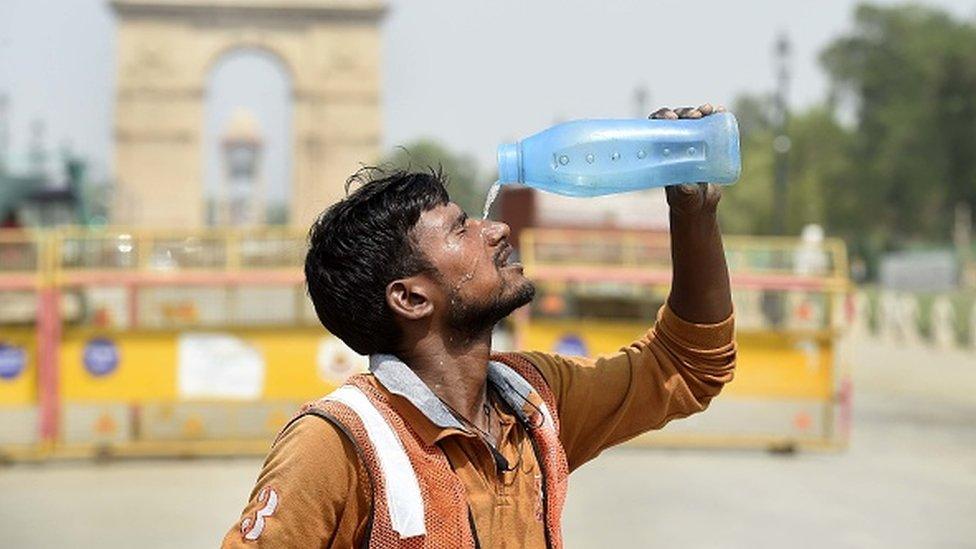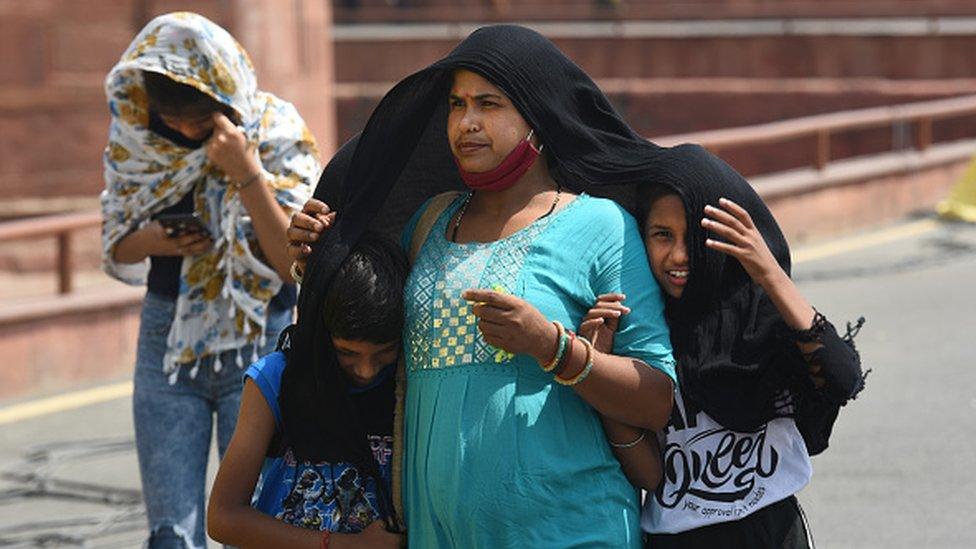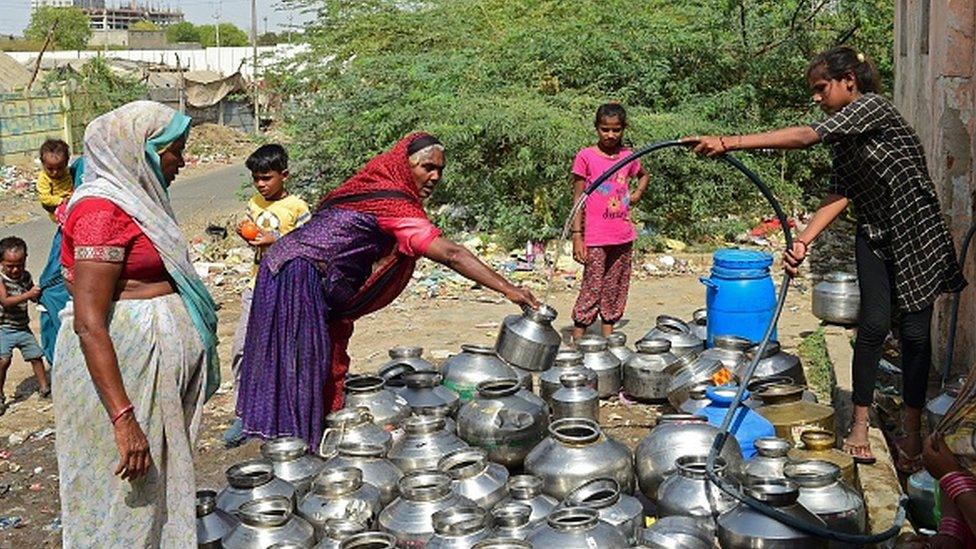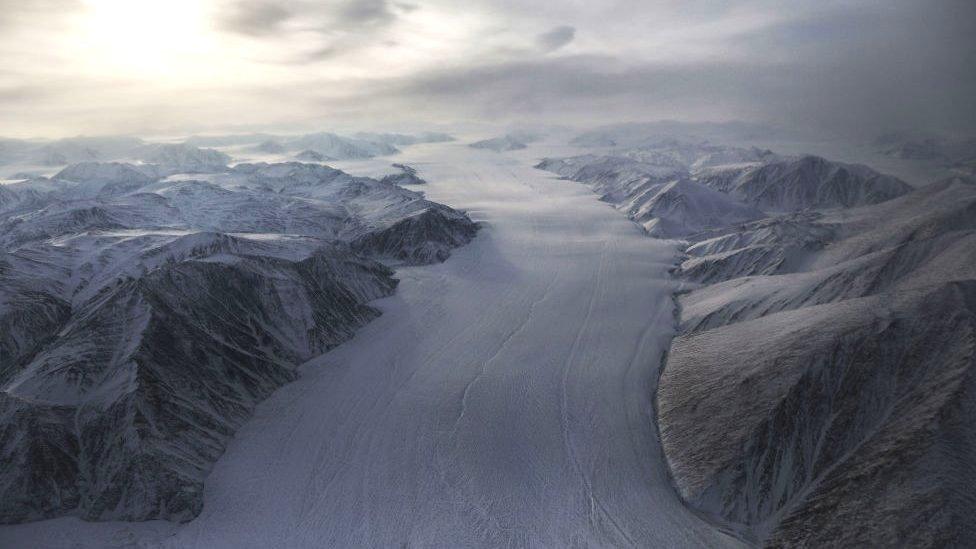Heatwave in India hits scorching 49 Celsius in capital Delhi
- Published
- comments

Summer began early this year with high temperatures from March
A scorching heatwave is sweeping through northern India with temperatures hitting a record 49.2 Celsius in parts of the capital city, Delhi.
This is the fifth heatwave in Delhi since March.
Officials in many parts of the country have asked people to take special care for their safety as temperatures are set to stay high.
They warned the heat could cause health issues for the vulnerable, including young children, the elderly and people with long-term illnesses.
What's happening in northern India?

Many experts say India is now having more intense heatwaves more often and that they also last longer
While heatwaves are common in May and June, summer in India began early this year with high temperatures from March, where average maximum temperatures for the month were the highest in 122 years.
Scientists have linked the early arrival of summer to climate change, and say more than a billion people in India and neighbouring Pakistan are at risk from the extreme heat.
The Indian states of Himachal Pradesh, Haryana, Uttarakhand, Punjab, and Bihar have experienced rising temperatures in the past few days, India's weather department said.
It added that temperatures are likely to fall by 2-4 Celsius in some areas but there may not be any break from the severe heat.
Dizziness and feeling faint from not drinking enough water.
Heart beats faster as the body works harder to keep cool.
Heat rashes as body loses heat from the skin.
Skin produces sweat, which cools the skin by losing heat through a process called evaporation.
Ankles can become swollen from increased blood flow.
Source: Public Health England

Most Indians - who earn a low amount of money - have no choice but to work with little protection against the heat
The impact of the heatwaves are already clear to see.
Farmers say the high temperatures have affected the wheat harvest, which could push up the cost of everything from bread and cakes to noodles and pasta around the world.
The heat has also triggered an increase in electricity demand, because of homes trying to keep cool using air conditioners, which has led to power outages in many states.
India's Prime Minister Narendra Modi also warned of the increased risk of wildfires due to rising temperatures.
More intense heatwaves, more often
WATCH: The Big Question - How do we predict the weather? (Dec 2017)
Summers have always been hot in many parts of India - especially in the northern and central regions.
But many experts say India is now recording more intense, regular heatwaves that are also longer in duration.
Roxy Mathew Koll, a climate scientist at the Indian Institute of Tropical Meteorology, agrees that several weather factors have led to the current heatwave. But he says global warming is adding to all of it.
"That's the root cause for the increase in heatwaves," he says, adding that more research is needed to link climate change to other, less extreme weather changes.
- Published3 December 2021

- Published20 August 2021

- Published29 July 2024

